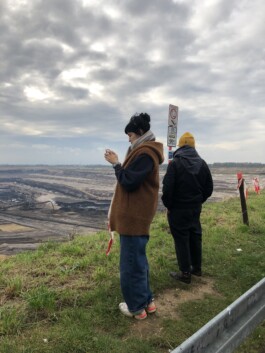Field Trip "Art and Dilemma"

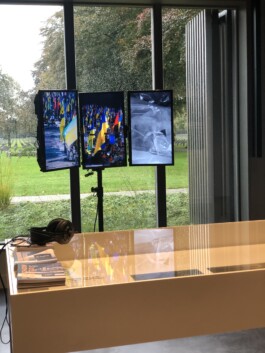
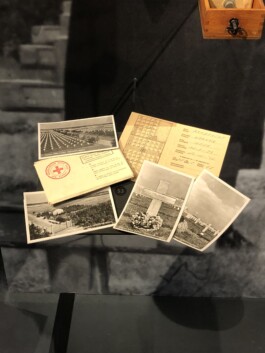
Date
October 25th/26th
Life is full of contradictions: we want one thing and yet do another. Sometimes this results in tangible dilemma situations in which there seems to be neither right nor wrong. On the "Art and Dilemma" field trip, the Borderland artists got to know people who are looking for ways to navigate through the complex conundrums.
October 25th
Borderlanders visit the German War Cemetery Ysselsteyn, Odapark, center for contemporary art and Raketenstation Hombroich
Sjoerd Ewals took the Borderland group on a tour of the German war cemetery at Ysselsteyn, where over 30,000 war dead are buried. Most of them are German soldiers, but a closer look reveals that people from a wide variety of nations and backgrounds fought in the German army. Their fates show that it is difficult to explain the past in terms of simple opposites such as right and wrong: The winners are not always the good guys, the losers not necessarily the wrong ones. The boundaries between right and wrong prove to be blurred, unclear and unstable. Perpetrators and victims can be found on both sides, often united in one and the same person. The German Military Cemetery Ysselsteyn, the Odapark and the Venrays Museum have succeeded in honouring and exploring the twilight of the past with the joint exhibition "In de schaduw van de tijd" (In the shadow of time).
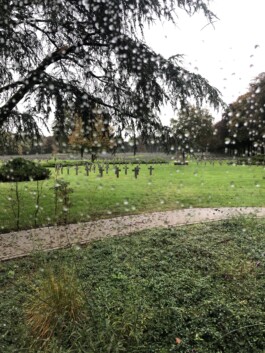
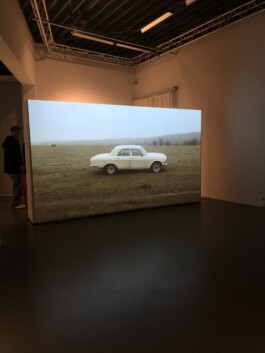
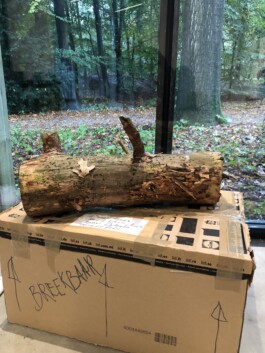
October 26th
Raketenstation Hombroich, construction site of Garzweiler documentation center and Hausmuseum of Inge Broska
To further understand how people navigate in dilemma situations, the Borderlanders met with Volker Mielchen from Zweckverband Landfolge Garzweiler, who presented the plans for a documentation centre on the edge of the Garzweiler open-cast mine near Erkelenz-Holzweiler.
After the violent eviction of the climate protest camp in the former village of Lützerath at the beginning of 2023, things became quiet again in the area affected by resettlement and excavation. Those who remained were those who had been there before: The local residents, who did not fight against open-cast mining because of climate protection, but for whom it was about the loss of their home. Caught between the loss of their home and their identification as miners with the open-cast mine, they had to find a constructive way of dealing with the situation - a dilemma that still runs through their lives and family histories today.
The life of local resident Inge Broska, whose home village Otzenrath fell victim to the open-cast mining, also bears witness to this lifelong struggle. She now lives in the Hochneukirch district of Jüchen and has transformed her home into a "house museum" over the years: here, photographs, orphaned everyday objects and the old Otzenrath dialect bear witness to "the past", before the open-cast mine ate into the landscape. Borderland fellows Silke Schatz and Darcy Neven spent a lot of time on site and with Inge Broksa as part of their Borderland residency.

